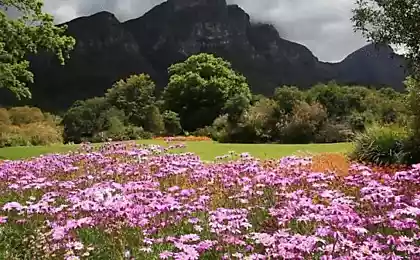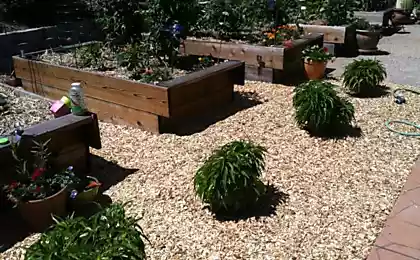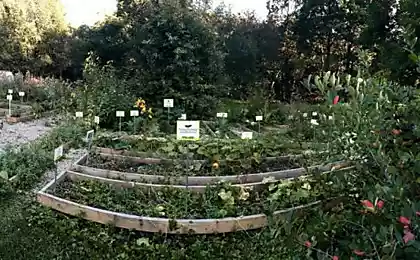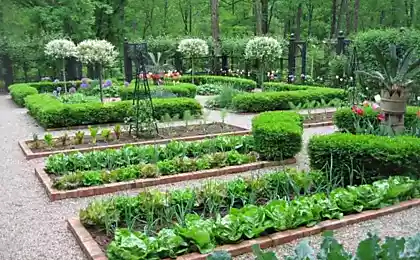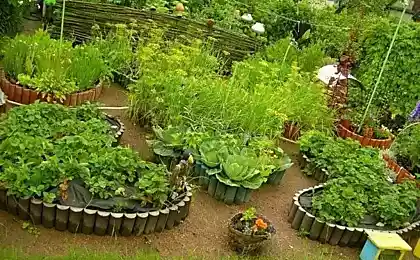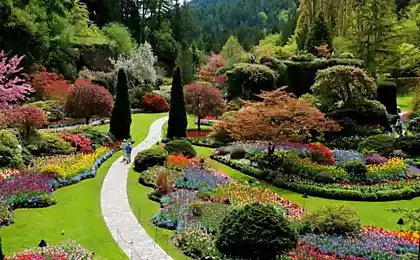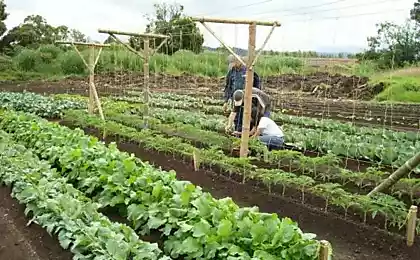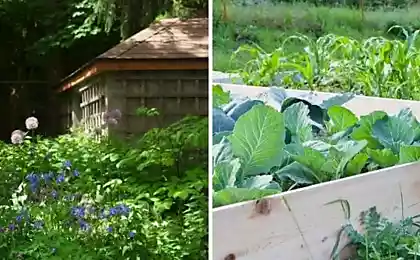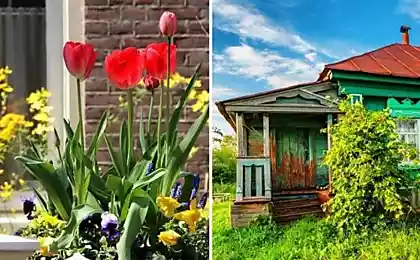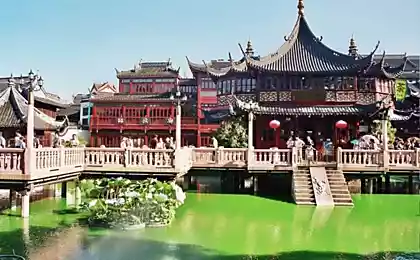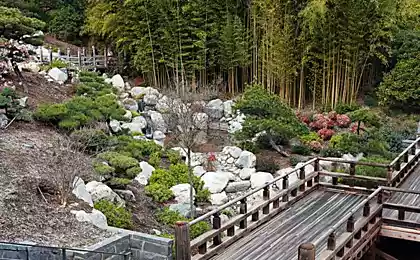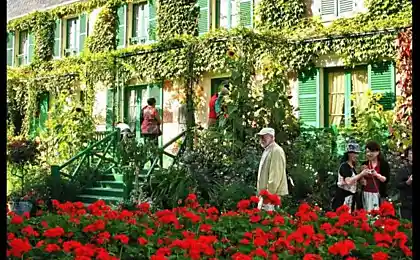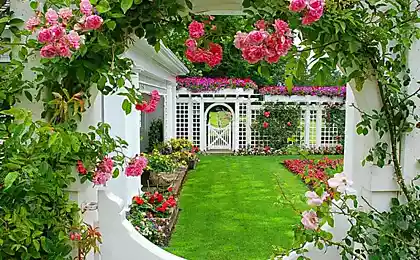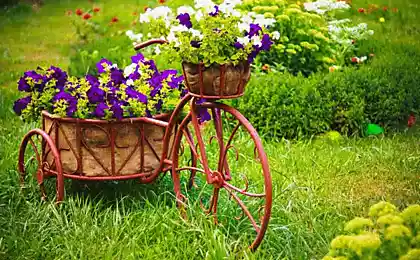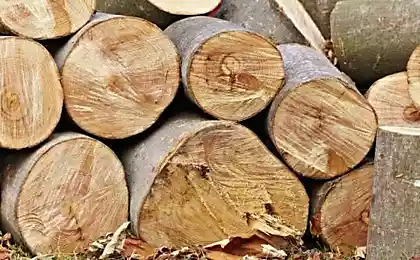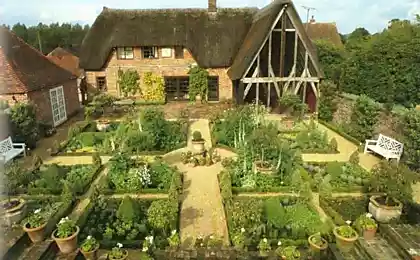550
"Harmful" advice to gardeners and horticulturists
Very often we do what is accepted by all. Whom, when and, most importantly, what made is unclear, but if the neighbor's vegetable garden is already dug up, then we need to dig, or "what will people think?" So, from one to the other, move a variety of tips to gardeners and horticulturists. Try to refute some of the most common stereotypes and offer alternative, "bad" advice.
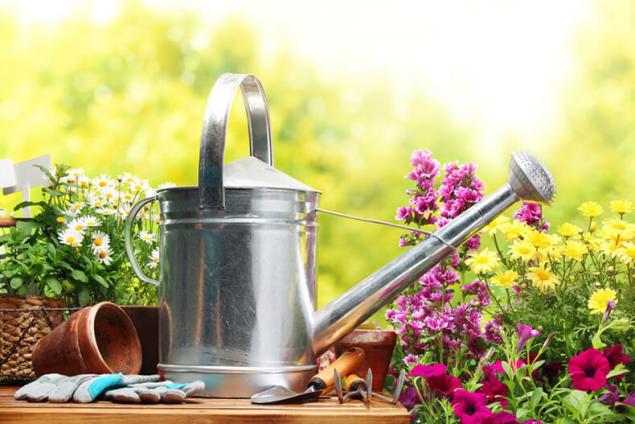
The soil was soft, it is necessary to dig and often loosen
Strange, but no one is digging new ground, but it is fertile and our gardens with her this can not be compared. In nature there is nothing ill-conceived, everything is balanced. If you have the soil to give life to plants, there are bugs, worms, that it is "pashut". These little "workaholic" successfully "work" for millions of years, creating thousands of channels, making it like a sponge. Digging, we are destroying the air channels, and the soil compacted. To overcome this seal is of the earth, we dig again and loose. A vicious circle.
To the soil was soft, you can't touch her deeper than 5 cm, that is only possible to work with the hoe or cultivator. Mind your own business, and let the beetles and worms to do their own.
Nice garden — clean the garden
Pure land does not happen in nature is unnatural. On any piece of open soil something will want to grow. Of course, it will be the weeds that we do not want to see, so take a hoe and begin (or rather continue) a never-ending struggle with the laws of nature, which is impossible to win. In addition, open, pure land instantly evaporates all the moisture that we give it when watering. Sisyphean task: pour and loose, loose and pour.
Soil must not be left open. To conserve moisture and suppress weeds, the beds need mulching.
Mulch prevents the roots to breathe
The roots can't breathe without mulch, when we are constantly forced to loosen the top layer, thereby breaking the air channels. Imagine a channel that is dug worm. On the surface, he goes far under the ground. After loosening the upper part of the channel is broken, deep in the earth the oxygen is prevented. When mulch to loosen the soil is not necessary: the weeds do not climb, crust after watering is not formed.
Organic mulch is breathable, it not only passes the light. If the soil is enough air, the oxygen for respiration of the roots will be enough, even if the inorganic mulch (dark film, roofing material).
Fertilizers necessary for the normal development of plants
Fertilizer is not a necessity, but an attempt of a drowning man to clutch at a straw. Nature of mineral fertilizer is not provided, it "works" only organic matter (humus, compost). Mineral fertilizers can be used, but they in the "wrong" basis is not only ineffective but can harm.
The best fertilizer is organic. The "right" soil (the original, not that digging and mulching) are full of enough vermicompost in huge quantity is produced "underground residents".
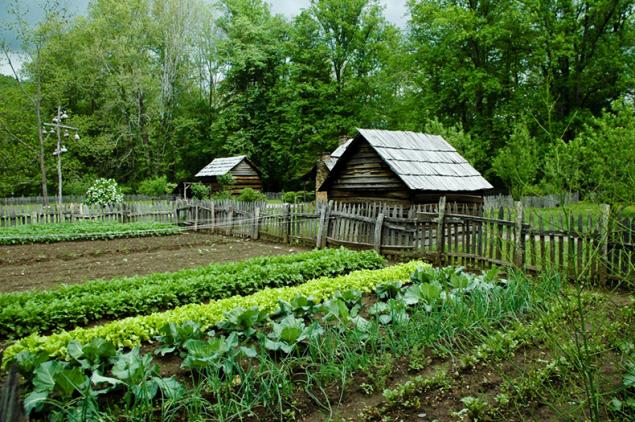
To fight pests need chemicals
Can and chemicals, but carefully and only in extreme cases. The chemicals act as antibiotics kill indiscriminately: both harmful and useful. Again, back to basics, to nature. Killing one pest, we create very comfortable conditions for reproduction of the other. Now I have to poison the chemistry and it.
Aligned properly the crops fight pests more efficiently and not endanger beneficial insects. For example, plant a few clumps of lettuce in the garden with radish, and cruciferous the flea you won't even remember.
How to use copper wire to get rid of Phytophthora on tomatoes
How to get a bumper crop of large, sweet beets
So what are we to believe?
The plants, ironically. Compare caring for a vegetable garden you can with the upbringing of the child. Psychologists say that before you punish the kid, you need to understand why or why he did something. And in the garden: if you understand why the soil is dry, why root vegetables are greens, why one does not want to grow together with others, tending the garden will not bring weariness and disappointment, and moral satisfaction and high yields.published
Source: vk.com/bg.garden?w=wall-83256494_36835

The soil was soft, it is necessary to dig and often loosen
Strange, but no one is digging new ground, but it is fertile and our gardens with her this can not be compared. In nature there is nothing ill-conceived, everything is balanced. If you have the soil to give life to plants, there are bugs, worms, that it is "pashut". These little "workaholic" successfully "work" for millions of years, creating thousands of channels, making it like a sponge. Digging, we are destroying the air channels, and the soil compacted. To overcome this seal is of the earth, we dig again and loose. A vicious circle.
To the soil was soft, you can't touch her deeper than 5 cm, that is only possible to work with the hoe or cultivator. Mind your own business, and let the beetles and worms to do their own.
Nice garden — clean the garden
Pure land does not happen in nature is unnatural. On any piece of open soil something will want to grow. Of course, it will be the weeds that we do not want to see, so take a hoe and begin (or rather continue) a never-ending struggle with the laws of nature, which is impossible to win. In addition, open, pure land instantly evaporates all the moisture that we give it when watering. Sisyphean task: pour and loose, loose and pour.
Soil must not be left open. To conserve moisture and suppress weeds, the beds need mulching.
Mulch prevents the roots to breathe
The roots can't breathe without mulch, when we are constantly forced to loosen the top layer, thereby breaking the air channels. Imagine a channel that is dug worm. On the surface, he goes far under the ground. After loosening the upper part of the channel is broken, deep in the earth the oxygen is prevented. When mulch to loosen the soil is not necessary: the weeds do not climb, crust after watering is not formed.
Organic mulch is breathable, it not only passes the light. If the soil is enough air, the oxygen for respiration of the roots will be enough, even if the inorganic mulch (dark film, roofing material).
Fertilizers necessary for the normal development of plants
Fertilizer is not a necessity, but an attempt of a drowning man to clutch at a straw. Nature of mineral fertilizer is not provided, it "works" only organic matter (humus, compost). Mineral fertilizers can be used, but they in the "wrong" basis is not only ineffective but can harm.
The best fertilizer is organic. The "right" soil (the original, not that digging and mulching) are full of enough vermicompost in huge quantity is produced "underground residents".

To fight pests need chemicals
Can and chemicals, but carefully and only in extreme cases. The chemicals act as antibiotics kill indiscriminately: both harmful and useful. Again, back to basics, to nature. Killing one pest, we create very comfortable conditions for reproduction of the other. Now I have to poison the chemistry and it.
Aligned properly the crops fight pests more efficiently and not endanger beneficial insects. For example, plant a few clumps of lettuce in the garden with radish, and cruciferous the flea you won't even remember.
How to use copper wire to get rid of Phytophthora on tomatoes
How to get a bumper crop of large, sweet beets
So what are we to believe?
The plants, ironically. Compare caring for a vegetable garden you can with the upbringing of the child. Psychologists say that before you punish the kid, you need to understand why or why he did something. And in the garden: if you understand why the soil is dry, why root vegetables are greens, why one does not want to grow together with others, tending the garden will not bring weariness and disappointment, and moral satisfaction and high yields.published
Source: vk.com/bg.garden?w=wall-83256494_36835
